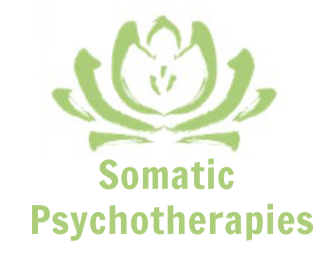 Asking For Help Is a Sign Of Strength.
Asking For Help Is a Sign Of Strength.
If you are looking for guidance with anxiety, fears, depression, trauma, PTSD or another issue, it takes courage to ask for help. Admitting you can’t do everything on your own, is the first step toward achieving wellness in a fast paced, demanding world.
The good news is, asking for help gets easier with a little practice. The way in which we cope in the world is greatly influenced by how we see the world. Asking for help, and obtaining a fresh perspective is often the first and most profound step toward developing the mental muscle needed to become stronger. The more support you gain, the better equipped you will be to take on new challenges and achieve more successes.
What if your struggles aren’t a sign of something “wrong” with you… but a reflection of how your brain has learned to protect you?
The anxiety loops. The burnout. The emotional overwhelm.
It’s easy to feel like these patterns mean you’re weak or broken — but they’re not flaws. They’re simply signs of how your brain has adapted to help you survive.
The human brain didn’t evolve to make us happy. It evolved to keep us safe.
For our ancestors, that meant being hyper-aware of threats. Our brains still hold on to that ancient programming. It’s what scientists call the negativity bias — a natural tendency to focus on what’s wrong, rather than what’s going well.
This expertise in evolved bias can make joy feel fleeting, peace feel out of reach, and even minor stressors feel overwhelming.
But here’s the encouraging truth: your brain is not fixed. It can change.
Thanks to the science of neuroplasticity, we now know that our brain is capable of forming new pathways — at any age, and in any stage of healing.
Scientific research shows that the brain remains flexible throughout life. This means that with the right support, your brain can literally relearn how to respond to life — in healthier, calmer, more resilient ways.
Neuroscientist Dr. Michael Merzenich states, “Real, lasting change starts with the brain — and your brain is built to adapt.”
So what does this mean for you?
It means that:
Emotional resilience is not something you’re born with — it’s something you can build.
Inner peace isn’t just a nice idea — it’s a skill you can strengthen.
Happiness, confidence, and calm aren’t reserved for a lucky few — they’re available to anyone willing to practice new patterns.
Neuropsychologist Dr. Rick Hanson explains that the brain tends to hold onto painful experiences like Velcro, while positive ones slip away like Teflon. That’s why we often ruminate on criticism or fear but barely notice moments of support, love, or success.
Unless we actively focus on them.
Research shows emotional regulation, secure attachment, and co-regulation all improve when you rewire trauma-based patterns.
When healing happens at the neural level, the changes don’t just stay inside — they show up in your relationships, too. It shifts how you love, how you lead, and how you live your day-to-day.
Instead of just surviving in connection, you start building relationships rooted in self-awareness, presence, and real care.
The encouraging part is in starting to make these changes…every time you sit in a moment of connection, calm, or insight (like in a therapy session), your brain is learning something new. With repetition and reflection, these experiences can begin to reshape your inner world.
Positive neuroplasticity in therapy works by:
When you are supported to consciously focus on positive, healing experiences, you activate parts of the brain responsible for emotional regulation and decision-making.
Over time, these neural pathways become stronger — just like muscles.
Eventually, you will notice it becomes easier to feel grounded, clear, and hopeful… even in the face of challenges.
That’s the power of therapy paired with the science of neuroplasticity for positive brain change.
You’re not stuck. You’re not broken. You’re in the process of rewiring.
Yes, the brain’s stress response often runs on autopilot — but healing takes intention. That’s what you’re doing through therapy: choosing to step out of old patterns and into new possibilities.
It isn’t about just thinking more positively or trying harder.
It’s about tapping into your brain’s natural ability to rewire itself to create real, lasting change.
Chances are, you’ve already tried staying positive, keeping calm, maybe even meditation or journaling.
But if the deeper patterns—formed early in life—aren’t addressed, those efforts don’t stick. This is why research-backed somatic (mind-body) therapy methods are so effective—they reach the unconscious parts of the brain that we can’t access through conscious effort alone.
Psychologist Dr. Fleet Maull said that, “If we don’t intentionally rewire our thinking, we’ll be unconsciously shaped by our past.”
Through therapy, you can:
Shift emotional set points
Lighten anxiety responses
Deepen your sense of self-trust and calm
Move from reaction to reflection
Experience more lasting feelings of happiness and satisfaction in your life
This means therapy isn’t about “fixing” yourself — it’s about achieving healing through gently guiding your brain into new ways of being.
Because you deserve more than just surviving. You deserve to thrive — and your brain is ready to help you get there.
I look forward to helping you make the first step toward improving your well being!
Hello Video From Gaye Mallinson At Somatic Psychotherapies!
Please contact me with any questions you may have…
+61459767347 | Send Email
Alternatively, you may wish to utilise my free Client Booking Portal to arrange an appointment directly.
The Benefits Of Therapy
Psychotherapy or counselling can be an effective tool in providing you with the necessary support and skills to overcome the challenges you currently face. By seeking therapy, you are taking responsibility and affirmative action to change what no longer works in your life. Many studies have shown throughout the years that therapy is also an effective form of treating and managing mental health issues and other emotional disorders.
As an experienced counsellor and trauma informed yoga trained therapist, it is my honour to assist you in exploring your core issues and move toward a healthy, fulfilling life. I utilise a variety of approaches including many ‘talk therapy’ and somatic (mind/body) modalities, pranayama breath work, along with trauma informed yoga (based on the Yin, Restorative and Nidra styles). I can teach you many various emotional regulation skills where this may be of benefit for you also. I will collaborate with you to create a therapy plan that you feel comfortable with, is customised to meet your unique circumstances, and achieves the goals of your desired change.
With honesty and compassion I will work closely with you to create and maintain an open channel of communication throughout your therapy journey with me at Somatic Psychotherapies. The overall aim of our therapy sessions together, will be to assist you develop the growth needed to lead a happy and fulfilling life on your terms.
Additionally, I can support you to hone the skill of self-compassion, which allows you to move more easily through difficult times in the future, as well as feel more balanced, positive and experience greater inner peace.
Many people believe that being hard on themselves is the only way to succeed. They’re often taught, or come to think that self-kindness is passive, and that real strength means pushing through, staying tough, and suppressing emotion.
But research tells a different story.
Self-compassion isn’t weakness—it’s a powerful source of resilience. It doesn’t hold us back—it helps us move forward. It gives us the confidence and courage to face challenges, the clarity to grow, and the strength to change. When we’re motivated by care instead of fear, we become truly empowered.
Therapy is a space where you can begin this shift—where self-compassion becomes an important tool for real transformation. Start your journey today and discover how kindness toward yourself can lead to meaningful, lasting change.

“Your present circumstances don’t determine where you can go; they merely determine where you start.”
– Nido Qubein


